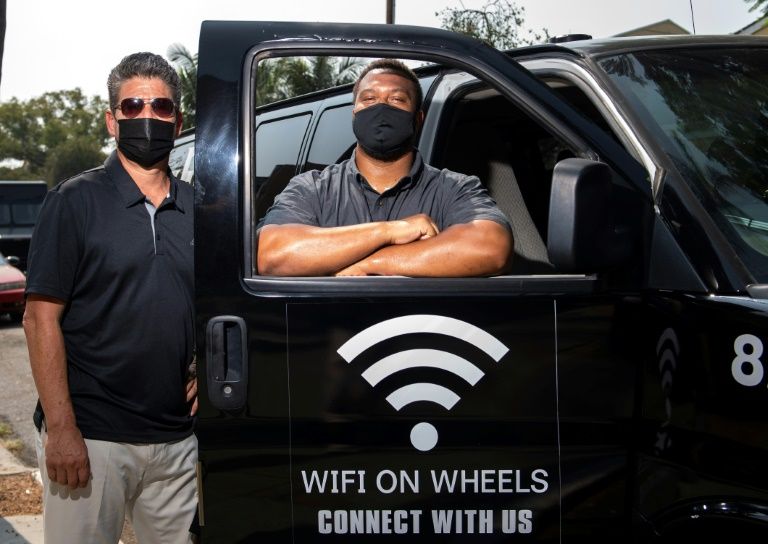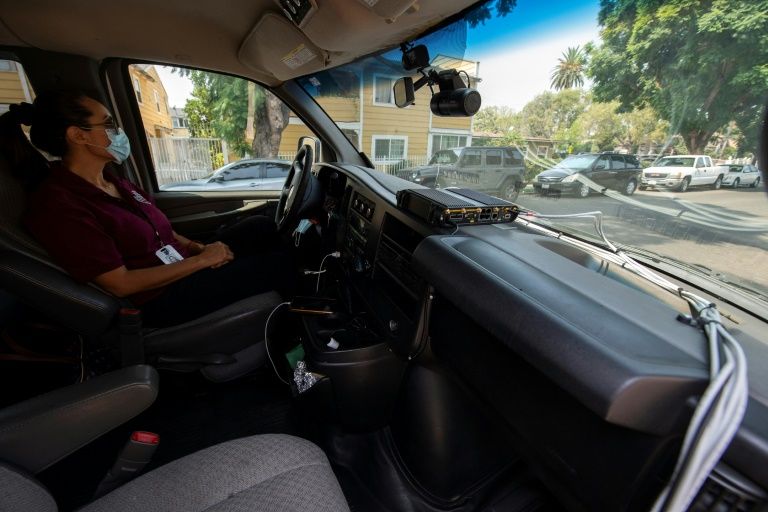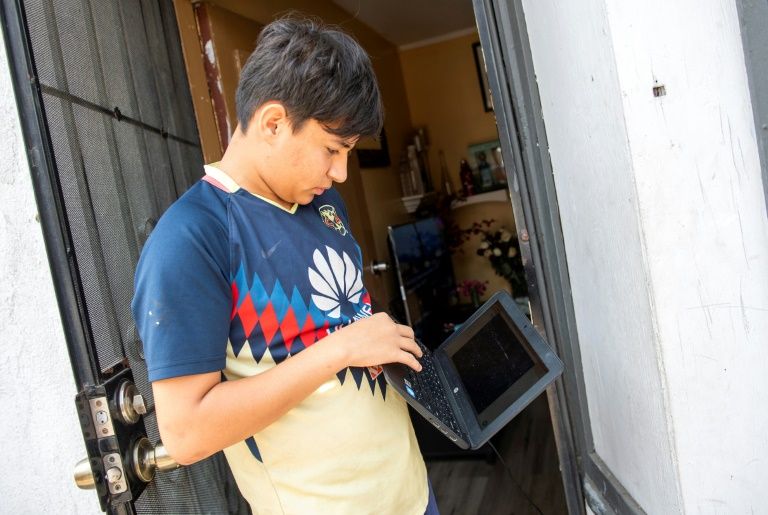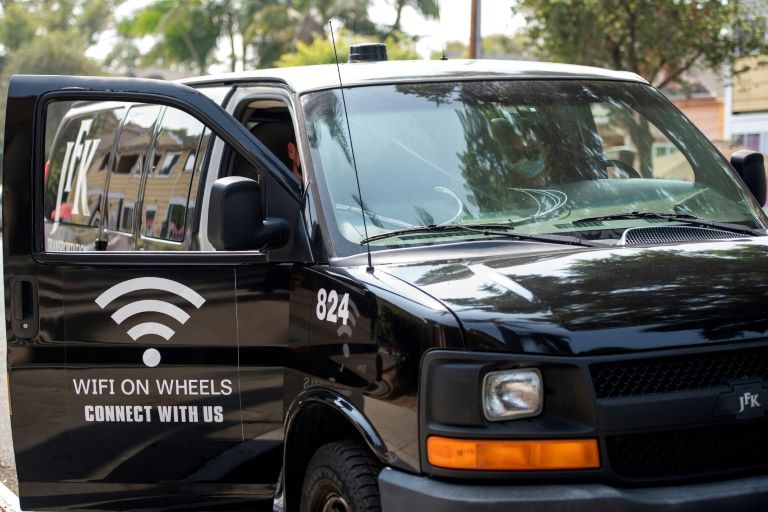A minivan with a wi-fi router attached to the dashboard and a satellite antenna on the roof is helping 200 disadvantaged students in Santa Ana, close to Los Angeles, cope with the rigors of distance learning during the coronavirus pandemic.
"When the school district launched the new school year last month, some of the parents had challenges," said Roman Reyna, who is overseeing the "wi-fi on wheels" project launched by JFK Transportation, which organizes school runs in the district.
"A lot of our students don't have access to wi-fi. So it's difficult for them to hear some of the messages or learning lessons behind the computer," Reyna said.
As many schools began the year with teaching online, the head of the company, Kevin Watson, came up with the idea of equipping some of his vans with internet relays and parking them at strategic points in the city where students with no Internet at home can stay on top of their school work.
"We park the van, and we're here about eight hours to ensure that the students are connected during the day," Watson said. "The wi-fi signal will reach approximately three and a half football fields, that's about 350 yards [350 meters]."
The connection is secured via a password and accessible only to students, he added.
 |
| Roman Reyna (L) and Kevin Watson (R), of JFK Transportation, pose by one of their minivans that give underserved kids wifi access in Santa Ana, California. Photo: AFP |
"The wi-fi routers are 5G, it's one of the best and very quick," said Watson, who is African-American and grew up in neighborhoods of Santa Ana where many immigrant families live and often struggle to make ends meet.
Each van is able to connect some 200 students, and seven have already been deployed as part of the project.
Watson said financial negotiations are ongoing with the school district and the hope is to have a fleet of about 50 of the vehicles.
'Up to speed on homework'
The project has highlighted inequalities in a state that boasts the fifth-largest economy in the world and is home to Silicon Valley and some of the biggest tech companies.
A recent report estimated that 25 percent of students in the state — about 1.5 million — did not have adequate internet access or computing devices needed for distance learning.
The same applies in other U.S. states, in part because of high internet costs — which average about 60 dollars a month — and poor infrastructure.
 |
| A simple router, and an antenna on the roof, get the job done; then 200 students bridge the digital divide. Photo: AFP |
In the southern state of Mississippi, for example, half of the students do not have access to wi-fi or laptops, according to a study by the NGO Common Sense Media and the Boston Consulting Group.
The study said it would take between $6 billion and $11 billion to eradicate this digital divide across the country, the equivalent of one to two percent of the defense budget.
In Santa Ana, it is estimated that some 10,000 students do not have access to wi-fi, said local councilman Vincent Sarmiento.
He said the city had been trying to create as many hotspots as possible, and initiatives such as Watson's had helped relieve the pressure.
For the students, the relay vans offer a chance to keep up with school work.
"I had wi-fi trouble ... and sometimes I would go to my friend's house and they let me work there," said 13-year-old Angel, who now has a "wi-fi on wheels" parked near his home.
"Now, it's working good and I've returned all my assignments."
 |
| Angel, 13, stands outside his home trying to connect his computer to the wifi hotspot provided by a parked van from JFK company in order to follow his online classes in Santa Ana, California. Photo: AFP |



















































